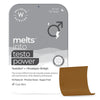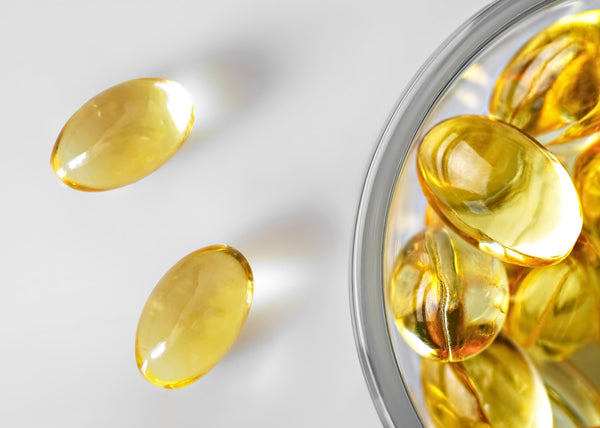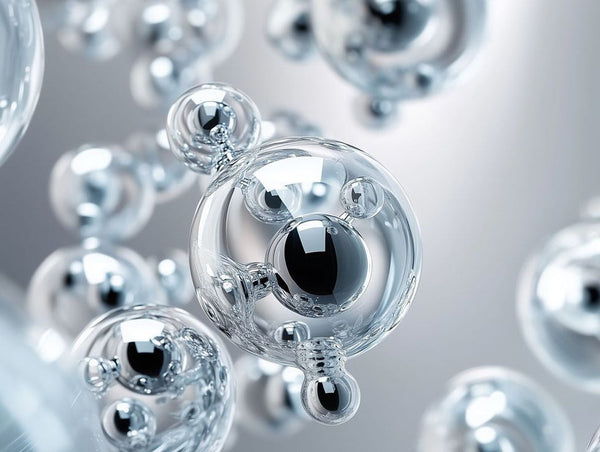Testosterone is a crucial hormone for men, playing a key role in muscle growth, energy levels, libido, and overall well-being. However, testosterone levels naturally decline with age, leading many men to consider testosterone supplements.
There are two main options: natural testosterone boosters and synthetic testosterone replacement therapy (TRT). Understanding the differences can help you choose the right approach based on your health goals and needs.
What Are Natural Testosterone Supplements?
Natural testosterone boosters contain plant-based ingredients, minerals, and amino acids that help the body naturally produce more testosterone. They do not introduce external hormones into the body but rather stimulate natural production while preventing testosterone breakdown.
Common Ingredients in Natural Testosterone Boosters
-
Fenugreek Extract (Testofen®) – Clinically studied for its ability to enhance testosterone levels and improve performance.
-
Himalayan Shilajit – A mineral-rich compound containing fulvic acid that helps boost energy, stamina, and testosterone production.
-
Ginkgo Biloba – Supports circulation and cognitive function, indirectly aiding testosterone balance.
-
Saffron – Known for its mood-enhancing properties and ability to support hormonal health.
-
Zinc & Magnesium – Essential minerals for testosterone synthesis and overall hormonal function.
Benefits of Natural Testosterone Supplements
-
Supports Hormonal Balance – Works with the body's endocrine system to naturally increase testosterone levels.
-
Safe for Long-Term Use – Since they do not introduce synthetic hormones, they do not suppress natural testosterone production.
-
Improves Energy and Stamina – Many ingredients enhance physical and mental performance.
-
Enhances Muscle Strength and Recovery – Supports protein synthesis and muscle growth, making it beneficial for active individuals.
What Is Synthetic Testosterone (TRT)?
Synthetic testosterone, commonly prescribed as Testosterone Replacement Therapy (TRT), involves the use of lab-made testosterone to directly increase hormone levels. It is primarily recommended for individuals with clinically diagnosed testosterone deficiency or conditions like hypogonadism.
Forms of Synthetic Testosterone
-
Injections – Administered every few weeks to maintain stable testosterone levels.
-
Gels & Patches – Applied to the skin daily for continuous absorption.
-
Oral Tablets – Less commonly used due to potential liver-related risks.
Benefits of Synthetic Testosterone
-
Provides a Rapid Increase in Testosterone Levels – Works quickly for those with severe deficiencies.
-
Improves Symptoms of Low Testosterone – Helps enhance libido, energy, and muscle mass within weeks.
-
Regulated and Monitored by Doctors – Requires medical supervision to adjust dosage and monitor side effects.
Natural vs. Synthetic Testosterone: A Detailed Comparison
|
Feature |
Natural Testosterone Supplements |
Synthetic Testosterone (TRT) |
|
How It Works |
Supports the body's natural testosterone production |
Introduces external testosterone into the body |
|
Effectiveness |
Gradual improvement over time, best for mild to moderate declines |
Immediate results, typically prescribed for severe deficiencies |
|
Safety |
No major side effects when taken as recommended |
Can suppress natural testosterone production, leading to dependency |
|
Availability |
Over-the-counter, no prescription required |
Requires a prescription and medical supervision |
|
Long-Term Use |
Safe for extended use |
Requires continuous monitoring and dosage adjustments |
Potential Risks & Side Effects
Natural Testosterone Boosters
-
Generally well-tolerated when taken in recommended doses.
-
Results take time and are not as immediate as synthetic testosterone.
Synthetic Testosterone (TRT)
-
May cause dependency – Since the body receives external testosterone, natural production may decrease over time.
-
Possible side effects – Includes acne, mood swings, increased red blood cell count, high blood pressure, and fertility issues.
-
Requires regular blood tests – To monitor testosterone levels and overall health markers.
Which One Should You Choose?
-
If you have a mild to moderate testosterone decline, natural testosterone supplements are a safe and effective option.
-
If you have clinically low testosterone levels, TRT may be necessary, but only under medical supervision.
For men looking for a natural, clinically proven way to support testosterone levels, Wellbeing Nutrition’s melts® Testo Power offers a blend of Fenugreek Extract (Testofen®), Himalayan Shilajit, Ginkgo Biloba, and Saffron, known for their testosterone-boosting and performance-enhancing benefits.
Maintaining optimal testosterone levels is essential for energy, muscle growth, and overall health. While synthetic testosterone can provide quick results, it comes with potential risks and requires medical oversight. On the other hand, natural supplements offer a sustainable, long-term approach to improving testosterone levels without disrupting the body’s hormonal balance.
FAQs
1. What is testosterone, and why is it important?
Testosterone is a crucial hormone that supports muscle growth, energy, libido, and overall well-being. Its levels naturally decline with age, affecting various bodily functions.
2. What are natural testosterone supplements?
Natural testosterone supplements contain plant-based ingredients like fenugreek, shilajit, and zinc, which support the body's natural testosterone production without introducing external hormones.
3. What are synthetic testosterone supplements?
Synthetic testosterone supplements, often prescribed as Testosterone Replacement Therapy (TRT), introduce lab-made testosterone into the body to quickly restore hormone levels in those with severe deficiencies.
4. How do natural and synthetic testosterone differ?
Natural testosterone supplements gradually enhance the body’s own production, while synthetic testosterone provides immediate results but may suppress natural hormone production and require medical supervision.































